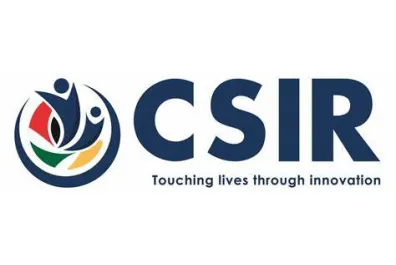Call for Aspiring Young Entrepreneurs to Participate in the CSIR Entrepreneurship Development Programme

The CSIR Entrepreneurship Development Programme is designed for aspiring young entrepreneurs. Entrepreneurs in this programme are challenged to achieve and exceed their goals while receiving the guidance and mentorship they need to stay the course and build essential skills for successful venture creation. The programme focuses on the process of establishing new sustainable business ventures with the potential to grow and contribute meaningfully to local economies. The programme identifies promising entrepreneurs with the talent and energy to build their own businesses. The programme aims to create a lasting positive impact on local economies by fostering sustainable new ventures and empowering aspiring entrepreneurs with core skills and competencies.
How will the programme work?
The CSIR Entrepreneurship Development Programme will support young entrepreneurs as follows:
- The programme follows a structured process in which entrepreneurs systematically develop viable business plans, with an opportunity to present to experts and potential funders for funding opportunities and refining their businesses;
- You will receive support from an experienced programme facilitator as well as a mentor.
- You will attend training sessions focusing on key entrepreneurship development areas, including understanding your market, how your solution meets market needs, developing a successful business model and financial management skills;
- You will receive mentorship to address key areas of your business; and
- The programme will conclude with a final business plan pitch session, which will include the Industrial Development Corporation, CSIR representatives and other external experts, who will assess pitches and funding readiness.
What type of businesses will be considered in this programme?
New ventures are drawn from various industry sectors, such as manufacturing, food processing and medicinal products, among others. The legal registration status of each business can fall into one of the following categories:
- Private companies (Pty Ltd);
- Co-operatives;
- Not-for-profit companies, particularly social enterprises; and
- Unregistered businesses, also known as nascent entrepreneurs or nascent venture creators, will receive support to formalise their businesses as part of the programme.
All businesses should be owned by local youth in their respective communities. Participants will range from 18 to 36 years from diverse backgrounds, including rural, peri-urban and urban areas in Gauteng, KwaZulu-Natal and the Western Cape. Participants may be at various stages in their venture creation efforts, from the initial idea stage to fledging start-up businesses. A rigorous selection process will be applied, and successful participants will receive tailored support.
What are the requirements for entrepreneurs to be considered for participation in this programme?
Potential participants in the programme will undergo a multi-step selection process designed to minimise the risk of carrying participants who may not fully engage. To be considered for the programme, applicants must meet the following requirements:
- Commitment and availability to attend at least 70% of all programme and mentorship sessions;
- A demonstrated desire to solve local economic development problems or a passion to pursue an opportunity they have already explored;
- Literacy and numeracy at NQF Level 4 (equivalent to Matric) are recommended;
- Proficiency in English and at least one other official South African language;
- Youth aged 18 to 36 years from previously disadvantaged backgrounds in one of the three provinces: Gauteng, KwaZulu-Natal and the Western Cape;
- Basic computer literacy, as participants will use basic computer applications; and
- Access to a computer or device with an internet connection to attend virtual sessions per the programme schedule.
Click here to apply

